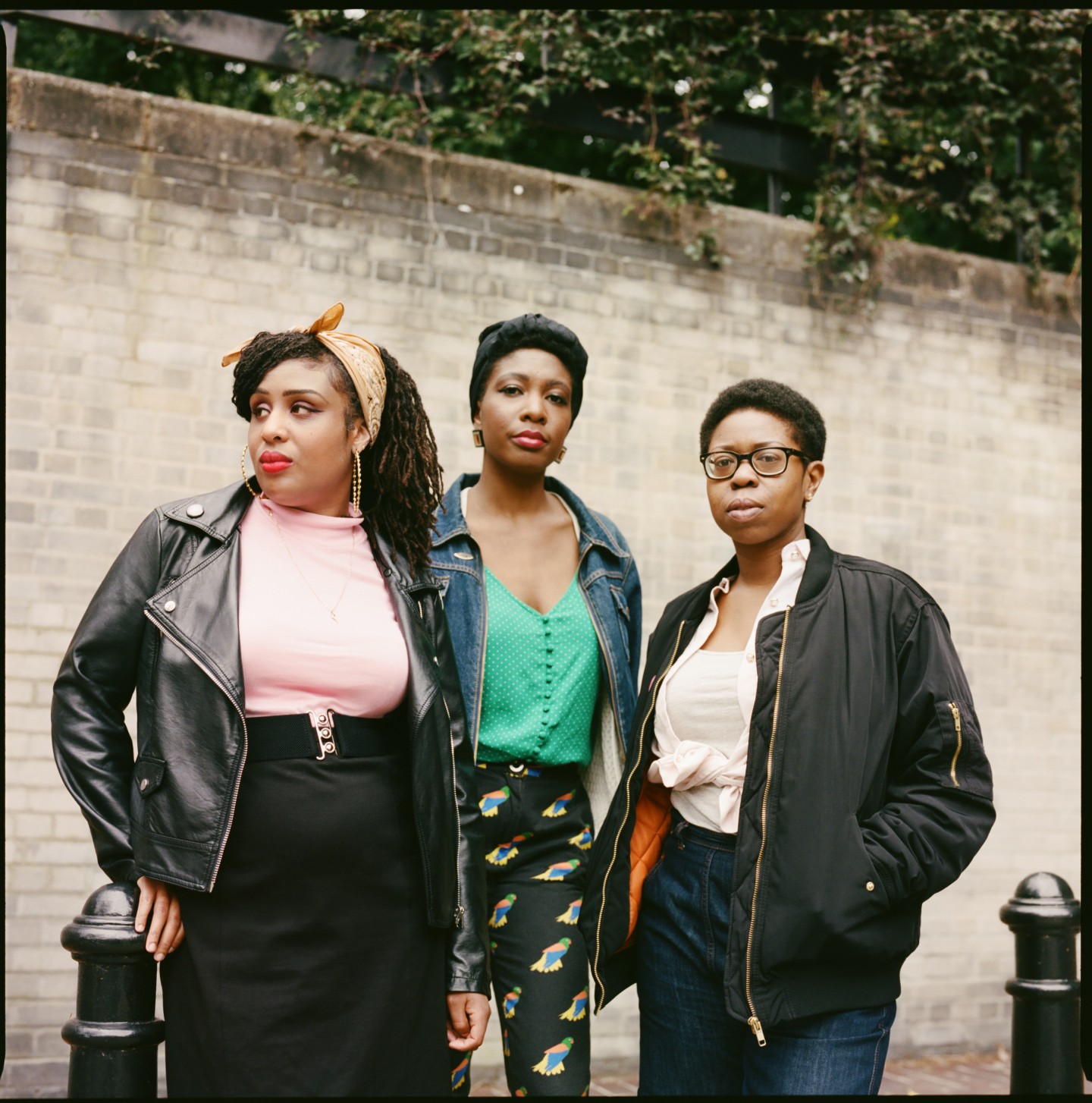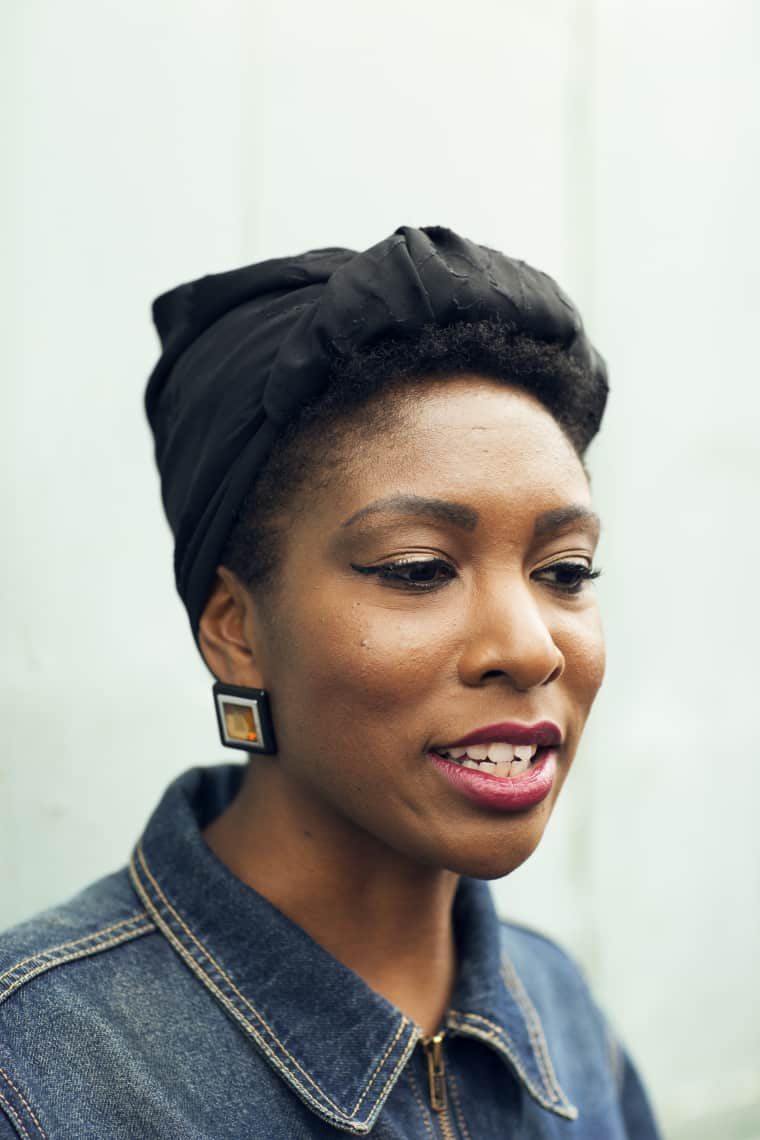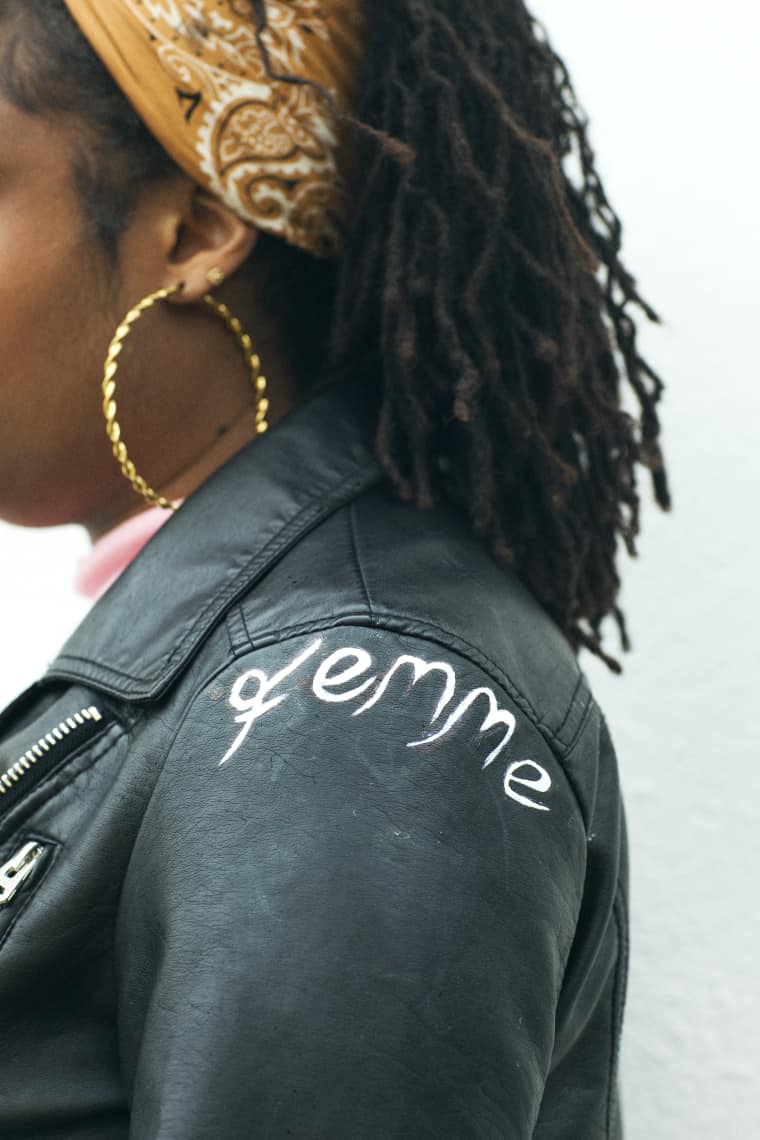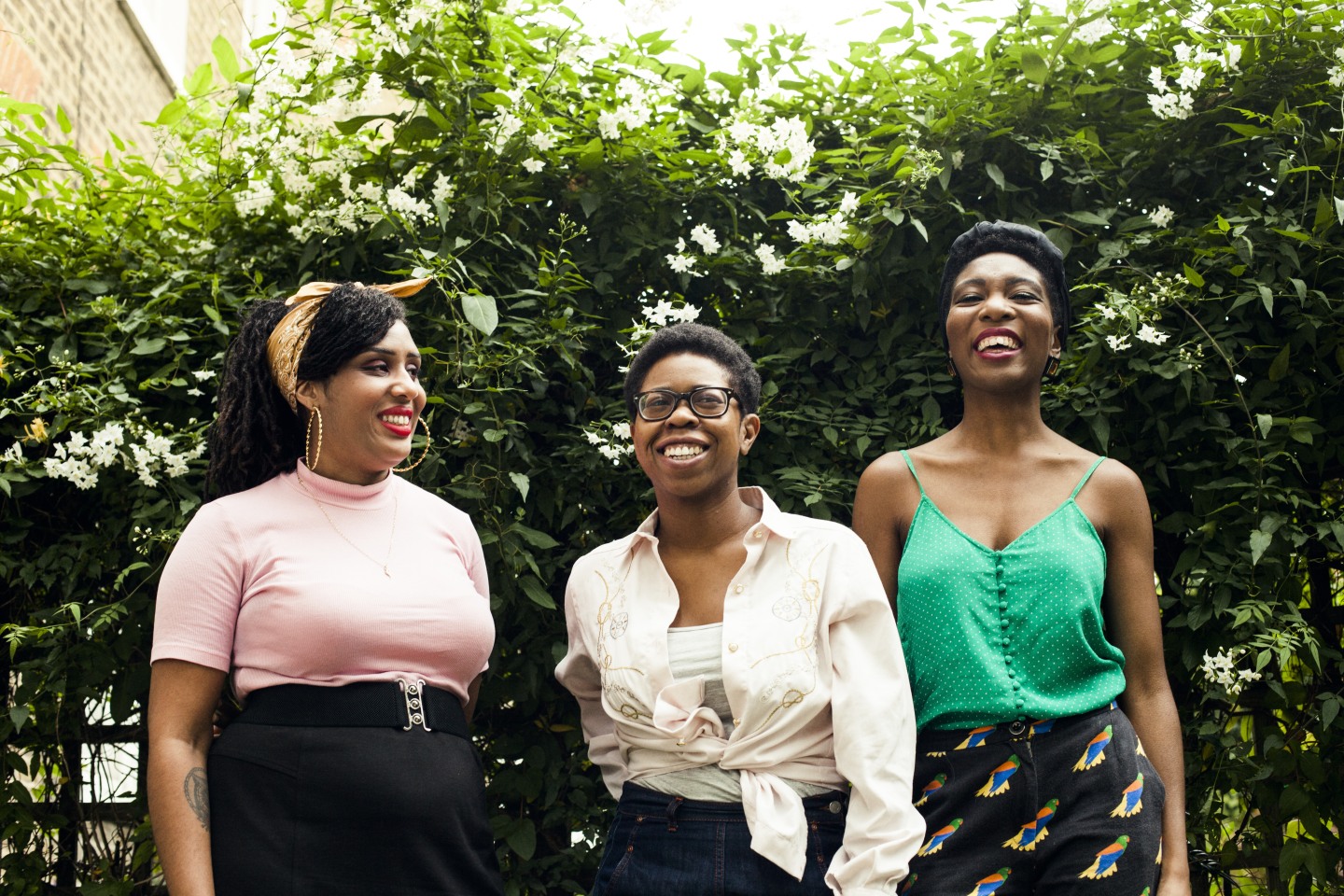 L-R: Chardine Taylor-Stone, Estella Adeyeri, and Steph Phillips of Big Joanie. Photographed in Stoke Newington, London, October 2017.
L-R: Chardine Taylor-Stone, Estella Adeyeri, and Steph Phillips of Big Joanie. Photographed in Stoke Newington, London, October 2017.
The FADER's longstanding series GEN F profiles emerging artists to know now.
You've never heard “No Scrubs” quite like you've heard Big Joanie sing “No Scrubs.” On a rainy October evening, the black feminist punk trio reimagined TLC’s R&B manifesto as a torrid battle cry, emphasizing the lyrics’ pro-woman dissection of space, power, and consent. Does she want your number? “NO!” bellowed drummer Chardine Taylor-Stone, to a rapt audience at London’s sticky-floored rock venue The Dome, where the band was opening for Downtown Boys and Priests. She dedicated the song to “all the women of color in the room, and to all survivors of sexual harassment and sexual violence,” and stood bolt upright while striking a tom drum and snare. Electricity whipped through the room — the kind that makes your skin prickle.
Big Joanie is the sort of band you get to a show early for. In the past three years, the London-based group has self-released three rough-hewn EPs on their own imprint, Sistah Punk, each one featuring songs that blend tangling post-punk guitar lines, spit-shined hooks, and a “sprinkling,” Chardine says, of black liberation politics. Their most recent EP’s knotty title track, “Crooked Room,” took inspiration from a lecture by Seattle-born writer Melissa Harris-Perry, who compared life as a black woman in a white patriarchy to trying to find a true vertical in a room where all the angles are out of whack. “That’s exactly what it is,” Steph Phillips, Big Joanie’s lead vocalist and guitarist, says when we meet in a cozy cafe near South London’s Caribbean Brixton Market. “[Society] distorts the world around us to try and make us see things not as they are, or to try and make us fail.”
 Estella Adeyeri
Estella Adeyeri
 Steph Phillips
Steph Phillips
“I needed a space for myself, and also a space for other people like me. I knew that I existed — someone else like me had to exist as well.” —Steph Phillips
On stage, Steph has a serene focus and a deep, assured singing voice. But she admits to a natural reserve, explaining that she lived vicariously through the riot grrrl music she devoured as a teenager in the middle England town of Wolverhampton. “As a very shy person, I loved hearing someone else stand up for themselves,” she says. A couple of hours away across the Midlands, the outgoing, quick-to-laugh Chardine grew up nurturing a love for Nirvana in Kettering, the town “where all the fucking government parties do their research for middle England.” In London, bassist Estella Adeyeri was listening to British alternative radio station XFM — “back when it wasn’t just blokey music,” she says.
In 2010, Steph joined a feminist punk band called My Therapist Says Hot Damn, but grew increasingly frustrated with the U.K. DIY scene’s lack of intersectionality. “People didn’t really talk about race, and there weren’t that many black people,” she says, toying with the gold pendant hanging over her orange sweater. “I needed a space for myself, and also a space for other people like me. I knew that I existed — someone else like me had to exist as well.” She put up a Facebook post asking if anyone wanted to join a black punk band, with the idea of debuting at London’s annual rookie rock haven First Timers in November 2013. Chardine, who’d met Steph at a black feminist meetup, replied quickly and plainly: “I wanna play like Jesus and Mary Chain; I wanna play stand-up drums.”
After Big Joanie’s original bassist Kiera moved to Scotland earlier this year, Estella stepped in; she’d previously played in the DIY bands JUNK. and Dirty Girl, and knew Steph from the gig circuit. “When I heard about them online I was like, Oh cool, there’s a black feminist punk band from London,” Estella remembers. “I hadn’t seen one before, and I liked that their sound was a bit disjointed — rather than 4/4 pop-punk, they referenced bands like The Slits.”

 Chardine Taylor-Stone
Chardine Taylor-Stone
Big Joanie’s new music sharpens some of that scratchiness and deftly refines their Spector-ish pop melodies. The result is full-bodied rock songs that will be hard to ignore when their debut album arrives next spring. One new song titled “Cut Your Hair,” which Steph wrote about a relationship on the rocks, is a prime example of an introspective punk ballad done right, and “New Year” is a self-affirming anthem with the wilful refrain, “I want it now / I need it now.” Just like on their cover of “No Scrubs,” the combination of their voices creates a friction that recalls the dueling vocals on Sleater-Kinney’s heartbreak classic, Dig Me Out. (Chardine used to sing along with the Olympia trio in her bedroom, she remembers with a laugh).
Outside the band, Chardine is a prominent activist and the founder of London’s Stop Rainbow Racism Campaign, which aims to get rid of racist performances from LGBTQ spaces; Steph is a journalist writing incisively about music and politics, and Estella teaches guitar to young girls. Part of their motivation for being visible is to make sure that punks of color don’t feel, as Steph puts it, like the “odd one out.” As an antidote to this, they all work together on London’s Decolonize Fest — a music festival by and for POC punks, held at the central axis for their home city’s punk community, DIY Space For London.
“People misremember their history,” says Steph in a no-nonsense tone. “We have an equal part in this history as anyone else. There are so many different people of color that started rock and roll and punk. Now, you can hear the Decolonize Fest name, or our band name — it’s a central point to say that this exists, this is normal, and this is how you can keep going.” And if you have Big Joanie’s dedication, you might just be unstoppable.
 L-R: Chardine Taylor-Stone, Steph Phillips, and Estella Adeyeri of Big Joanie. Photographed in Stoke Newington, London, October 2017.
L-R: Chardine Taylor-Stone, Steph Phillips, and Estella Adeyeri of Big Joanie. Photographed in Stoke Newington, London, October 2017.